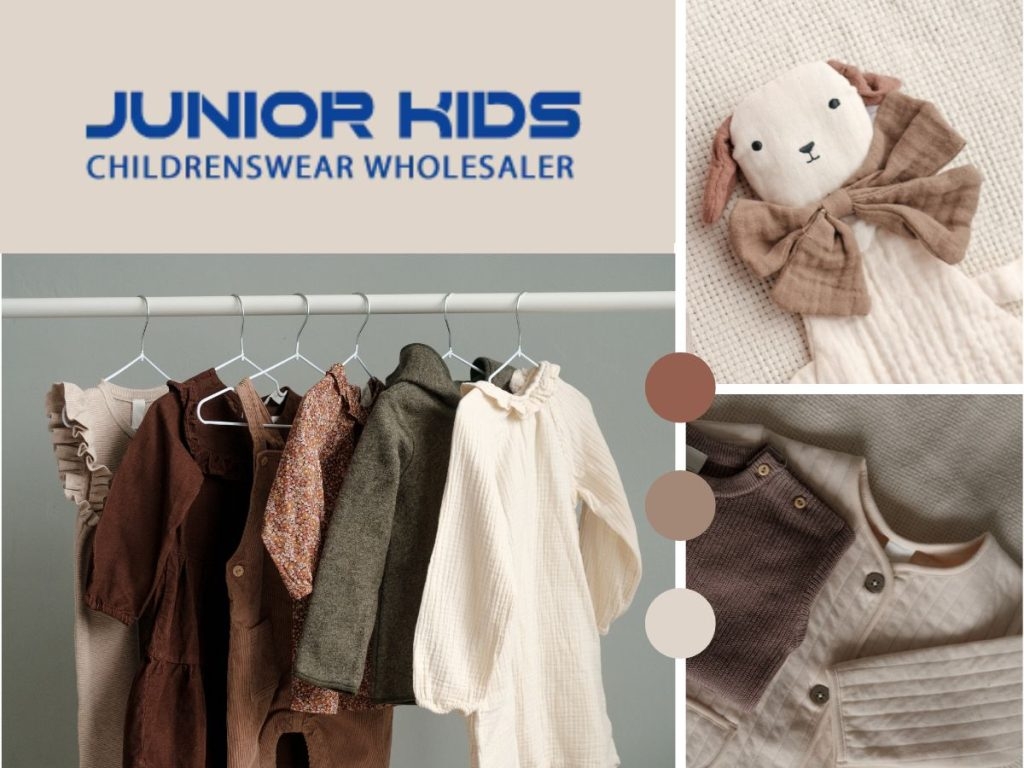Understanding the Market for Kids Clothing Wholesale

Market Trends and Demands
The kids' clothing market is characterised by dynamic trends that shift with seasons, cultural influences, and fashion fads. Understanding these trends is crucial for any business aiming to succeed in the wholesale market. Currently, there is a significant demand for sustainable and ethically produced clothing. Parents are increasingly becoming conscious of the environmental impact of their purchases, making eco-friendly products a popular choice.
Target Demographics
Identifying your target demographics is a pivotal step. The primary market for kids' clothing includes parents, grandparents, and guardians of children aged 0-12 years. Additionally, schools, daycare centres, and kids' event organisers also form a substantial part of the market. Understanding the preferences and purchasing behaviours of these groups will help in tailoring your product offerings effectively.
Finding Reliable Suppliers
Domestic vs International Suppliers
When it comes to sourcing kids' clothing wholesale, businesses have the option to choose between domestic and international suppliers. Domestic suppliers often offer the advantage of shorter lead times and easier communication. However, international suppliers, particularly from countries like China, India, and Bangladesh, may provide more cost-effective options.
Evaluating Supplier Quality
Ensuring the quality of products is non-negotiable in the kids' clothing market. It is essential to conduct thorough evaluations of potential suppliers. This includes requesting product samples, visiting manufacturing facilities if possible, and checking for certifications that guarantee quality and ethical production practices.
Building a Diverse Product Range
Seasonal Collections
To stay competitive, it is vital to offer a diverse product range that caters to various seasons. Winter collections might include warm jackets, sweaters, and thermal wear, while summer collections could feature light dresses, shorts, and t-shirts. Offering seasonal collections not only meets customer demand but also encourages repeat business.
Inclusive Sizing and Styles
Kids' clothing should cater to a wide range of body types and personal styles. Including a variety of sizes ensures that you can accommodate the needs of all children. Additionally, offering a mix of classic styles and trendy pieces allows you to appeal to both conservative buyers and those looking for the latest fashion.
Marketing Your Kids Clothing Wholesale Business
Utilising Digital Marketing
In today's digital age, an online presence is essential. Utilising digital marketing strategies such as search engine optimisation (SEO), social media marketing, and email campaigns can significantly boost your visibility and sales. Creating engaging content that showcases your products, shares styling tips, and highlights customer testimonials can help build trust and attract more customers.
Participating in Trade Shows and Exhibitions
Trade shows and exhibitions provide excellent opportunities to showcase your products to a broader audience. These events are also a great way to network with potential buyers, understand market trends, and gain insights into competitors' strategies.
Pricing Strategies for Success
Competitive Pricing
Setting competitive prices is crucial in the wholesale market. Conducting market research to understand the pricing strategies of your competitors can help you position your products effectively. Offering discounts for bulk purchases or loyal customers can also incentivise buyers.
Value-Based Pricing
Instead of solely focusing on keeping prices low, consider a value-based pricing strategy. Highlight the unique features of your products, such as organic materials, unique designs, or superior craftsmanship, to justify a higher price point. This approach can help you target premium segments of the market.
Ensuring Compliance and Quality Control
Adhering to Safety Standards
Children's clothing must adhere to strict safety standards to prevent any risk of harm. Ensure that your products comply with regulations related to flammability, choking hazards, and the use of non-toxic materials. Regularly conducting quality control checks can help in maintaining these standards.
Ethical Production Practices
With increasing awareness about ethical consumption, it is vital to ensure that your products are produced under fair labour conditions. Partnering with suppliers who follow ethical practices not only enhances your brand's reputation but also meets the expectations of conscientious consumers.
Building Strong Customer Relationships
Providing Exceptional Customer Service
Customer satisfaction is key to the success of any business. Providing exceptional customer service, from the point of inquiry to after-sales support, can help in building long-term relationships with your clients. Offering easy return policies, prompt responses to queries, and personalised services can significantly enhance customer loyalty.
Engaging with Your Audience
Engaging with your audience through various channels such as social media, newsletters, and community events can help in creating a strong brand presence. Sharing stories, behind-the-scenes looks at your production process, and customer experiences can make your brand more relatable and trustworthy.
Conclusion
Venturing into the kids clothing wholesale market can be highly rewarding with the right strategies and approaches. By understanding market trends, sourcing from reliable suppliers, offering diverse and high-quality products, and employing effective marketing techniques, you can position your business for success.
- Industry
- Art
- Causes
- Crafts
- Dance
- Drinks
- Film
- Fitness
- Food
- Juegos
- Gardening
- Health
- Home
- Literature
- Music
- Networking
- Other
- Party
- Religion
- Shopping
- Sports
- Theater
- Wellness
- News


